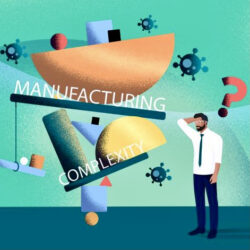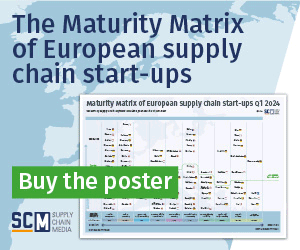Pandemic highlights frustrations with AI-powered decision-making systems

More than 80% of supply chain managers across Europe and the USA have been left frustrated by the limitations of tools and software used for AI-powered decision-making during the COVID-19 pandemic. One of the main problems is that artificial intelligence and human decision-making are still not being combined effectively enough to help supply chain managers make the best day-day decisions. Despite their frustration, however, supply chain professionals overwhelmingly believe in the potential of AI. 90% agree that AI-powered tools and software will help them make better decisions by 2025 and over half (59%) strongly agree that artificial intelligence will transform supply chains for the better in the next five years, according to findings from Secondmind, a UK-based AI start-up and decisions company.
Secondmind commissioned Censuswide to conduct a survey among over 500 supply chain managers across Europe and the USA to learn how artificial intelligence was helping or hindering their decision-making. The managers cited a number of factors hindering the ability of AI systems to deliver value, which could all be grouped into two categories: data and organizational issues.
At a time when accuracy and speed were of the essence, 50% were frustrated about the need to spend significantly more time on manually analysing and interpreting data to assist strategic and operational decisions, 37% suffered from a lack of reliable data to feed into AI systems and 19% indicated that historic data became meaningless in times of unprecedented change. From an organizational perspective, one third of respondents (34%) said their leadership teams lack an understanding of what is currently needed on the ground to make faster, data-driven decisions. Furthermore, rigid processes and internal structures prevented over two in five (41%) planners and managers from quickly responding to changing market conditions.
More resilient supply chains
The decision-makers surveyed stated that the data pain points are holding them back from working on higher-value initiatives that could contribute towards building more resilient supply chains. These initiatives include proactively preparing scenarios and plans for future unexpected ‘black swan’ events (30%), and spending more time on proactive and in-depth planning for major events such as Christmas and Black Friday (41%).
Of those who believed artificial intelligence alone was not enough to inform effective decision-making, the reasons cited were that human intuition cannot be replicated by a machine (62%), there will always be some events that a machine can’t predict (59%) and expertise developed from years on the job is critical in decision-making (51%). In this context, the majority of managers who use AI systems want their domain expertise and experience to factor into the in-depth analysis and decision-making process. Desirable capabilities for AI systems include the ability to modify AI-generated forecasts using the decision-maker’s own judgement (53%), AI that can learn from humans when historic data is unreliable (47%) and AI that could show what data or contextual information that impacted a forecast (39%).
The power of human & AI collaboration
Vishal Chatrath, CEO and co-founder of Secondmind, comments: “COVID-19 has been a wake-up call for businesses operating in global supply chains as they prepare to rapidly accelerate the implementation and deployment of artificial intelligence in the coming years. For AI to realize its potential, it will be critical for organizations to deploy systems that can cope with sparse or incomplete data environments and promote the effective collaboration between people and AI. Our report shows how much people benefit from AI, but also how much AI needs people. A collaborative approach to decision-making that combines the right skills and capabilities for each task is essential, particularly when systems are disrupted during uncertain times and unpredictable events.”
Access the full Secondmind report here.









